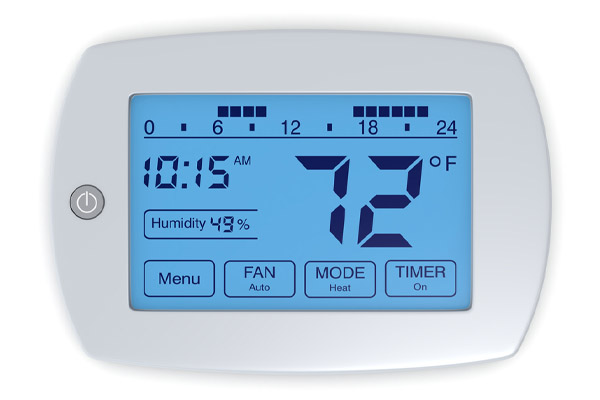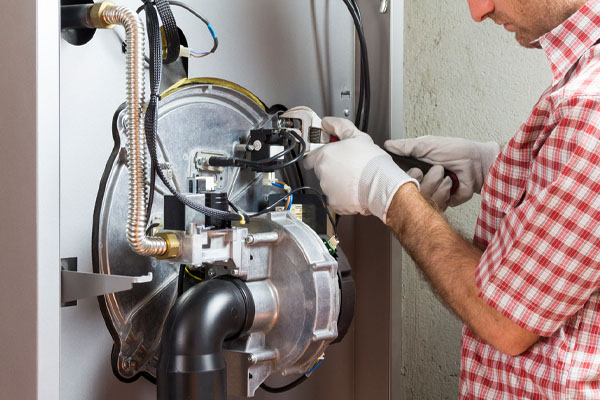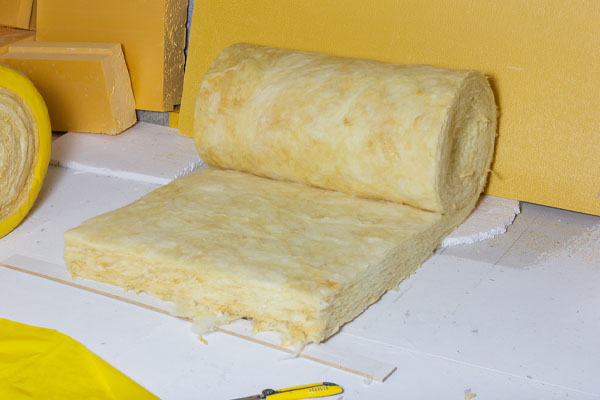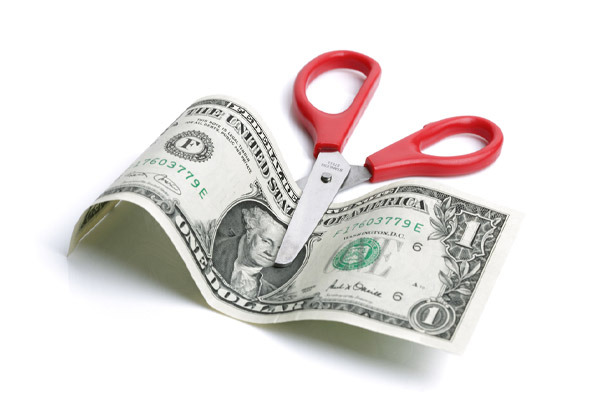Contents
- 1 10 Ways to Save Money on Heating Oil Costs
- 1.1 1. Reduce Bathroom Fan Usage
- 1.2 2. Install a Programmable Thermostat
- 1.3 3. Change Air Filters
- 1.4 4. Schedule a Professional HVAC Tune-Up
- 1.5 5. Secure Doors and Windows Against Drafts
- 1.6 6. Improve Home Insulation
- 1.7 7. Isolate Unused Areas
- 1.8 8. Purchase Heating Oil in the Summer
- 1.9 9. Minimize Emergency Delivery Costs
- 1.10 10. Leverage a Smart Oil Gauge
- 1.11 Conclusion
- 2 Call Wilcox Energy For Reliable Heating Oil Deliveries & HVAC Services

Life in Connecticut is synonymous with two undeniable realities: chilly weather and steep heating expenses. Households rely heavily on their heating systems, such as furnaces and boilers, to keep warm throughout the frosty winter season. While completely shutting off your heating to cut costs isn’t viable, alternative strategies exist to lower your oil heating costs. This article will explore several effective methods to decrease heating oil costs, ensuring you maintain comfort and safety in your home.
10 Ways to Save Money on Heating Oil Costs
Continue reading to discover ten valuable insights on how to lower your heating oil expenditures and energy costs effectively.
1. Reduce Bathroom Fan Usage
Bathroom fans enhance air circulation, manage moisture, and eliminate odors. However, they can also contribute to heat loss in your home by expelling warm air at a rapid pace. It’s essential to be conscious of how long these fans are running. Avoid leaving them on longer than needed. If your fan includes a built-in timer, experiment with shorter durations to assess if it still effectively serves its purpose. By optimizing the use of your bathroom fans, you can achieve a balance between maintaining air quality and reducing both oil and electricity usage.
2. Install a Programmable Thermostat

Each home operates on a unique schedule. Some bustle with activity in the early hours as families prepare for their day, while others become lively around meal times. Heating requirements differ accordingly. By installing a programmable thermostat, homeowners can adjust their heating system to turn on or off at predetermined times, aligning with their daily routines. Additionally, they can modify temperature settings as needed. This device enhances the efficiency of your home heating system.
3. Change Air Filters
Consistent maintenance is vital to ensuring your heating system operates smoothly. Proactive care can avert many issues by keeping your equipment in optimal condition. Regularly clean around your furnace and oil tank. Use these moments to inspect for any leaks, rust, or irregularities. Replace the air filters every month or as often as the manufacturer recommends. If you see a significant accumulation of dirt on the filters, consider changing them more frequently to maintain efficiency and air quality.
4. Schedule a Professional HVAC Tune-Up

Heating systems are intricate assemblies with numerous components collaborating to keep your home warm. Over time, these parts can wear down or malfunction. Professional HVAC technicians are adept at identifying and resolving potential issues before they disrupt your heating system’s performance. They can inspect electrical connections, clean internal components, and replace parts showing signs of wear. It’s advisable to arrange for a thorough annual tune-up, ideally in the fall when temperatures are moderate, allowing you to switch off the furnace during the maintenance period comfortably.
5. Secure Doors and Windows Against Drafts
Doors and windows are entry points for people and cold air, which can seep through tiny openings. Even when closed, these gaps may still exist. To detect them, place your hand along the edges of doors and windows to feel for drafts. These openings cause the indoor air to remain cool, requiring your heating system to exert more effort to reach the desired temperature. Sealing these gaps with caulking and weatherstripping can greatly diminish oil consumption.
6. Improve Home Insulation

Evaluate your current insulation: is it effectively keeping your home warm? If you find it lacking, consider enhancing your house’s insulation to better shield against the cold. Inspect for any damage caused by moisture or pests. If present, it’s advisable to replace the compromised insulation. Upgraded insulation will more efficiently retain heat within your home, reducing the demand on your furnace and, consequently, your oil consumption. Over time, the energy savings generated can offset the cost of the new insulation.
7. Isolate Unused Areas
Certain rooms, like guest rooms or storage spaces in larger homes, often go unused for extended periods. You can reduce your heating system’s workload by closing the vents in these unoccupied areas. This prevents hot air from being distributed into these spaces, allowing your furnace to operate more efficiently and burn less oil. However, be cautious not to close off too many areas excessively, as this could potentially disrupt the overall airflow and efficiency of the heating system.
8. Purchase Heating Oil in the Summer
The prices of commodities are subject to the principles of supply and demand. Typically, prices are lower when there’s abundant supply and diminished demand. In the case of heating oil, demand peaks during the winter, while in the summer, it significantly drops as the warm weather reduces the need for heating. Consequently, suppliers often lower their prices during these off-peak months to attract customers. This presents an opportune time for homeowners to refill their oil tanks, taking advantage of these seasonal discounts.
9. Minimize Emergency Delivery Costs

It’s not uncommon for a full tank of heating oil to deplete before winter ends, necessitating a mid-season refill. To avoid additional costs, schedule your oil delivery during regular business hours. Suppliers often charge premium rates for deliveries made during non-standard times, such as nights, weekends, or holidays, due to higher labor costs for their employees. Reserve emergency deliveries for truly urgent situations when you’ve completely run out of fuel. A proactive approach is to refill your tank when it reaches about 30% capacity, thereby circumventing the need for urgent, costly replenishment.
10. Leverage a Smart Oil Gauge

Informed choices stem from accurate data. Understanding the figures is crucial for making optimal decisions, whether in business or managing your home’s heating. A smart oil gauge provides detailed insights into your heating system’s usage by the hour, day, week, month, and year. This automated tracking eases the management of your oil tank, giving you a clear picture of whether it’s nearing empty or almost full. With this tool, you can adopt fuel-efficient strategies and immediately observe the impact on your consumption.
Conclusion
Lowering your heating expenses is achievable through straightforward adjustments within your home. You can significantly impact your oil consumption by altering daily habits, making key home improvements, and integrating efficient devices into your heating system. These measures don’t demand excessive time, money, or effort. Remember, you’re not alone in this endeavor. Enlist the help of HVAC professionals for cost-effective annual maintenance. They can assist with ongoing issues and offer expert advice to optimize your home’s heating efficiency.
Call Wilcox Energy For Reliable Heating Oil Deliveries & HVAC Services
For top-notch service and competitive prices on heating oil deliveries and HVAC services, contact Wilcox Energy as soon as possible.
We offer a broad range of fuel delivery plans and financing options, which allow you to customize your oil deliveries to meet your specific needs. We also deliver Bioheat® heating oil, a blend of ultra-low sulfur heating oil and biodiesel. This liquid renewable fuel makes your home more eco-friendly and your heating system more efficient. It comes to you without any added cost. In addition, we perform heating system repairs and maintenance for the purpose of enhancing the overall efficiency and functionality of all your home heating equipment. Contact Wilcox Energy for all of your residential heating needs. Click the link to view our service area.
For more information about our heating oil deliveries or HVAC services, be sure to contact Wilcox Energy. You can click here to contact us or call us at (860) 399-6218. Call now!

Related Articles:
